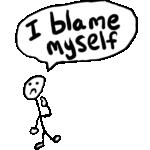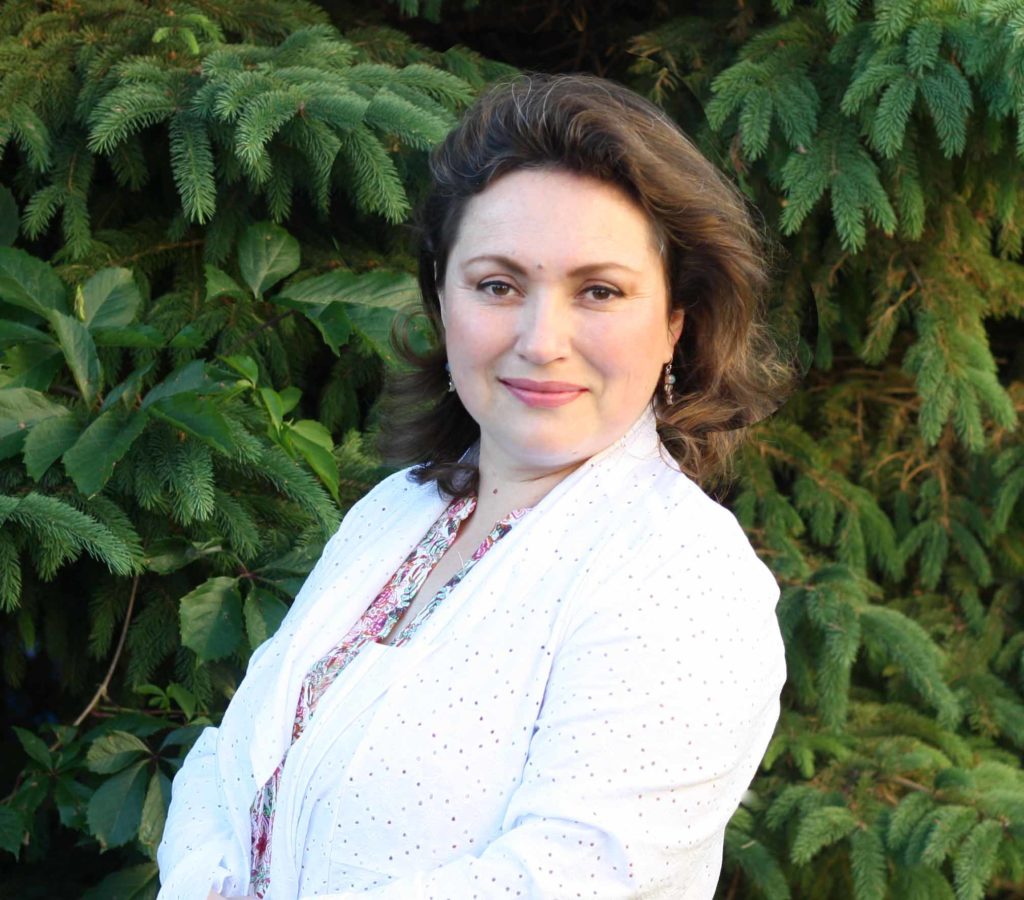We’ve all used self-blame to make sense of circumstances out of our control. For example, I often hear clients say to me: “I feel guilty I’m not able to motivate my spouse to go the gym” or “I feel terrible my best friend is going through a tough time. I feel like at some level it is my fault for not being a better friend”. And the list of self-blaming thoughts goes on and on.
And to be honest, we can never hold ourselves responsible for somebody else’s actions,  lack of actions or experiences, especially when we are discussing other adults in our lives.
lack of actions or experiences, especially when we are discussing other adults in our lives.
Simply put: If you did not cause the situation, you are not to blame. But often, people take too much of the blame pie. Often people feel too responsible for other’s experiences. They feel guilty for “not doing more”.
And although being a responsible adult that takes responsibility for his or her actions is something we certainly need to encourage in our society, taking blaming or holding guilt for how others handle experiences is a lose-lose game.
There is a difference between personal responsibility and self -blame.
If you identify as someone who often feels guilty, responsible or somehow the reason behind other people’s actions, reactions or lack of action, you may want to consider the following two Psychological Techniques:
#1. Learn to Share the Blame
People who self-blame are bias! Yes, people who self-blame have a tendency to discount, ignore, or fail to see the role of other people. Blame has to be shared. Before you take on a lot of the blame or responsibility for other people’s “misfortunes” I invite you to ask the following questions: 1. What part is the other person playing in the situation? 2. Does the other person take any responsibility for their actions or lack of actions? 3. Are they interested in changing the situation?
Asking these questions will help you lighten your load of “self-blame” but most importantly, it will help you practice a more global way of looking at problems or  challenges. In general, we know that the more global view of a problem the more chances of finding a solution.
challenges. In general, we know that the more global view of a problem the more chances of finding a solution.
#2. Get used to examining other possibilities
How many times have you said hello to a co-worker and got no response? Or, how many times have you said something to a co worker and got an unexpected negative reply? We’ve all been there. But how much self-blaming we are used to doing, plays a role in how we react to the situation.
Before jumping to conclusions and assuming it is something you said or did, I invite you to practice mental loosening up. Asking questions such as: What other reasons beside YOU, might there be for the other person’s reaction?
Dr. Martin Seligman, one of the founders of the Positive Psychology movement, has conducted many studies looking at mental loosening skills. In some of his research with children at risk of developing depression he has concluded that that helping them loosen up their thinking had an absolute positive effect in their self-blaming tendencies.
Practicing mental loosening skills or getting used to asking: What other reasons could there be for this person’s reaction? Will help you engage less and less in self-blame.
Like any skill, the more you practice, the better you become at generating multiple possible causes for events you would have previously exclusively blamed on yourself.
Your partner in change,

